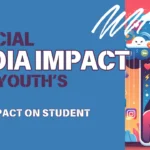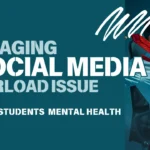The social media impact on students and parents in India has been widely discussed, with significant effects observed on education, mental health, and family dynamics.
Benefits of Social Media for Students and Parents
Access to Educational Resources
- Online Learning Tools: Over 80% of Indian students use platforms like YouTube for academic purposes.
- Parental Support Groups: Communities for sharing parenting advice are frequently accessed.
Enhanced Communication
- Family Connections: Platforms like WhatsApp allow regular updates between family members.
- Teacher-Parent Interactions: Schools utilize digital platforms for parent-teacher meetings and updates.
Opportunities for Skill Development
- Learning New Skills: Tutorials on platforms like Instagram and YouTube are often used for extracurricular growth.
- Career Guidance: LinkedIn is leveraged for career-oriented students.
Challenges Faced by Students and Parents
Mental Health Concerns
- Stress and Anxiety: 65% of students report feeling pressured due to social media comparisons.
- Parental Anxiety: Monitoring children’s online activity creates stress for 50% of parents.
Disruption of Family Time
- Reduced Interactions: Families spend 30% less quality time due to excessive screen usage.
- Conflicts Over Usage: Arguments about appropriate online activity are common.
Exposure to Misinformation
- Fake News Impact: Parents and students are often misled by unverified online content.
- Health Myths: Circulation of false health advice affects decision-making.
Social Media Usage Patterns
| User Group | Daily Usage (%) | Primary Platforms |
|---|---|---|
| Students (13-24 years) | 85 | Instagram, YouTube |
| Parents (25-50 years) | 65 | WhatsApp, Facebook |
| Average Usage | 4-5 hours | Across platforms |
Managing the Social Media Impact
Setting Boundaries
- Time Management: Apps like Digital Wellbeing help in limiting screen time.
- Family Guidelines: Establishing rules for social media use improves dynamics.
Promoting Digital Literacy
- Educational Workshops: Schools host sessions to educate students and parents about online safety.
- Parental Training: Programs for understanding digital trends are offered.
Fostering Healthy Habits
- Encouraging Offline Activities: Sports and hobbies reduce dependence on screens.
- Quality Content Consumption: Using social media for learning and skill-building is prioritized.
Conclusion
The social media impact on students and parents is profound in India, influencing education, relationships, and mental health. While the benefits such as access to knowledge and improved communication are evident, challenges like anxiety and misinformation need to be addressed. Through awareness, boundaries, and digital literacy, a balanced approach can be achieved for both students and parents.
These articles have similar information which will definitely add value to your understanding on this topic by now-
- How Social Media Shapes the Lives of Today’s Youth
- The Dual Impact of Social Media on Youth: Pros and Cons
- Understanding Social Media Addiction Among Students
- Social Media and Mental Health: A Deep Dive into Student Well-Being
- What is the social media impact on youth/ Genz & alpha gen?
- Managing Social Media Overload: Tips for Students’ Mental Health












